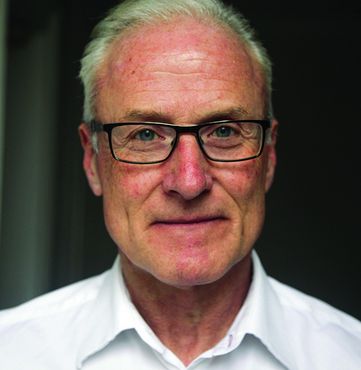
HSBC is restructuring, which will require an immense internal and external comms programme. New businesses, new responsibilities, new reporting lines; there is a lot to do and a lot to communicate. What makes the challenge more interesting is that the communications function is also restructuring and parting ways with its global head.
New CEOs tend to retain their inherited comms team, at least for a few months (even, in one case I was close to, when they loathed the head of the function). The argument is that you need a well-oiled comms unit that is used to working together to support the inevitable management reshuffle with subsequent restructuring-related comms activities. With HSBC’s comms function now facing its own uncertainty, its focus might not be 100% on the job at hand.
So why would HSBC risk letting its global head of comms go now? For one thing, the remaining lieutenants have the confidence of longstanding chairman Mark Tucker and new CEO Georges Elhedery.
Second, the key messaging should not be especially complicated. Whittle it down to its core elements – the fundamental reasons behind the changes – and the rest will follow, across all stakeholder groups, with tweaking for specific interests.
Also, when internal and external comms assume a central role at a significant moment, anxieties will be sidelined for a while. When the pressure is on and expectations are high, many of us are in our element and enjoy being in the proverbial thick of it.
So, in the short term, the show must go on.
The media will be chasing for updates, for leaks of fresh appointments, people leaving, things going wrong, as will HSBC colleagues. All these things will happen, even with the best laid plans. Elhedery and the team around him will be expecting little fires to flare up from time to time.
From the top
The clincher, of course, is the quality of communication from the top. Comms functions play a critical role when it comes to message advice, dissemination and management, but at times like these the voice that really matters is that of the CEO.
Elhedery is a good communicator. He comes across as accessible, genuine and smart. I’m a fan – I've seen him in action. He won’t be startled or concerned by a little commotion here or an indignant departure there. What I am sure he will do is take his responsibilities very seriously when it comes to leadership comms.
The tone he sets, the content of his town hall meetings, the effort he puts in to reach across the geographic spread of HSBC will determine how well the restructuring lands internally. It’s the same when engaging with the press and external stakeholders. Communications leaders can guide and support but the responsibility lies with Elhedery and his executive committee.
And herein lies the real challenge to the comms team: keeping up the momentum at that senior management level. Even if the messages have been honed, the comms events carefully thought through and the Q&As properly rehearsed, people get tired and enthusiasm wanes.
Often in a restructuring there is a gap between the big announcement and the next round of official updates. In HSBC’s case, it will have been four months before further details are disclosed in February when it reports full-year results. That means plenty of time for employees to get jittery and the media to unearth something unexpected while chat rumbles on about what happens to the Hong Kong business. Elhedery has been batting that one away but, given the shape of the restructuring, the question is inevitable – and one that is unlikely to disappear soon.
Elhedery can’t do everything on his own and will need the support of his streamlined executive committee. For an organisation as large as HSBC, with its many internal and external stakeholders all wanting a share of Elhedery and his team’s time, it is vital they cover all bases.
The comms team members, putting aside their own concerns, must drive the senior executives on, whispering in their ears with words of encouragement. They will be running round ensuring all employee and media comms' interests are catered for.
That can be a thankless task. I've had times when I wanted senior management to address a certain audience and all they want is to wind down. “Just two more journalists,” I'd say. “Can we do them together?” a weary executive might ask. “No, they hate each other.”
“Can we do them tomorrow?” No, the deadline is today. I might be pushing my luck, but the dividends will be worth it, I'd argue. Sometimes it works, sometimes it doesn’t.
So good luck to my former colleagues. It is a destabilising time for the bank and for the communications function. The ones driving the restructuring comms are sensible, no-nonsense professional communicators. And, importantly for the comms function, experienced managers.
Jezz Farr has been a senior communications adviser to major international banks for more than 25 years – including 13 years at HSBC